- Home
- Madeleine L'engle
Meet the Austins
Meet the Austins Read online
To my family
Table of Contents
Title Page
Introduction
The Telephone Call
The Scream in the Office
The Terrible Week
How Not to Have an Aunt in One Hard Lesson
The Anti-Muffins
The Visit to the Stable
GOFISH - QUESTIONS FOR THE AUTHOR
Austin Family Chronicles
Copyright Page
Introduction
“Who are you in this book?” we would constantly ask our grandmother, Madeleine L’Engle, about every book that she wrote. Her books have protagonists that many people can identify with, generation after generation, whether it is the brave and clever, gawky and frustrated Meg Murry, or the vulnerable and awkward, but at the same time, sensitive and intuitive Vicky Austin. Madeleine also strongly identified with her characters, and said many times that she was both Meg and Vicky. There was so much that was recognizable as her and her life in her stories, and we wanted to be able to map her fiction to her biography, thereby fixing and understanding her place, and by extension, ours, in the family and the wider world.
Most children want to be told stories about themselves. We were no different, and so, reading the Austin books was always a special thrill, because the narrative is peppered with incidents and details that also featured in family lore, like the adorable malapropisms of Rob Austin and Vicky’s bicycle accident. The Austin family house in the quiet New England village of Thornhill (as described in Meet the Austins) is ever-present as a touchstone of their domestic peace, and is modeled on Crosswicks, a pre-Revolutionary War farmhouse in northwestern Connecticut where our grandparents and their children lived in the 1950s. The cross-country road trip in The Moon by Night copies the Franklin family itinerary of 1959, during which Madeleine started writing A Wrinkle in Time. In The Young Unicorns, the Austin kids unravel a mystery at the Cathedral of St. John the Divine, where our grandmother was the librarian and writer-in-residence for more than forty years.
There is enough similarity of detail in the books to have caused us some confusion: If our grandmother is Vicky, how can she have the bicycle accident that left our own mother with a Y-shaped scar on her chin? If some of the details confounded our sense of reality, we never questioned the underlying truth of the characters and our grandmother’s relationship to them. If Madeleine were Vicky, then we felt understood. Because we were Vicky, too.
People would joke that Meet the Austins could have been called Meet the Franklins (Madeleine’s married name), and yet, we knew that Vicky and the Austins couldn’t be a simple translation of our grandmother’s life, because of the family tension and pain surrounding these books about this family. Madeleine’s own children were often shocked at how their own lives were appropriated and rewritten for publication, and felt judged against this very happy and practically perfect family. The line between fact and fiction can sometimes be blurry for writers, and the temptation to inscribe a certain version of and authority on events is strong.
All of Madeleine’s writing, fiction and nonfiction, was an example of how all narrative is fiction, and all fiction can be true. She wrote and lectured extensively on the difference between truth and fact, arguing that it is through story that we human beings approach the truth, not through facts, which can only get us so far. As her granddaughters, this was both liberating and confusing, but we happily suspended our disbelief, and some of our best-loved stories are ones that are culled from her real life, from her days in the theater, from her early years with our grandfather, and the mysterious decade of the fifties.
The five books that are now presented as The Austin Family Chronicles were written over a period of thirty years. A prolific writer of more than sixty books in a variety of genres, Madeleine created a web of characters that grew, changed, and surprised her. As we re-read these books over our lifetime, what strike us are the very different responses we have to this family. At eleven, we thrilled to the references to things that our mother or aunt or uncle would confirm were true. At seventeen, we were cynical about the blur between fact and fiction, and thought we could read our grandmother as if she were a book. In our mature adulthood, we recognize how rich and complicated our grandmother was, and that fact can be the springboard for fiction, and fiction can inform who we are and tell us about ourselves.
Charlotte Jones Voiklis and Lena Roy
March, 2008
The Telephone Call
It started out to be a nice, normal, noisy evening. It was Saturday, and we were waiting for Daddy to come home for dinner. Usually he’s home early Saturday, but this day he had a maternity case, and babies don’t wait for office hours. Uncle Douglas was up for the weekend. He’s Daddy’s younger brother—ten years younger than Daddy—and he’s an artist and lives in New York, and we all love him tremendously.
Mother had a standing rib roast cooking in the oven, because it’s Uncle Douglas’s favorite, and the kitchen smelled wonderful. Uncle Douglas and John were out in the old barn working on John’s space suit, but the rest of us were in the kitchen. I don’t suppose we’re what you would call an enormous family, Mother and Daddy and the four of us children and the animals, but there are enough of us to make a good kind of sound and fury. Mother had music on, Brahms’s Second Piano Concerto, kind of loud to drown us out. Suzy was performing an appendectomy on one of her dolls. She was doing this at the same time that she was scraping carrots, so the carrot scraper was a scalpel as well as a scraper.
Rob was supposed to be helping her, both with the appendectomy and the carrots, but he’d become bored, so he was on the floor with a battered wooden train making loud train noises, and Colette, our little gray French poodle, was barking at him and joining in the fun. Mr. Rochester, our Great Dane, was barking at one of the cats, who was trying to hide behind the refrigerator. I was being angelically quiet, but this was because I was doing homework—a whole batch of math problems. I was sitting near the fireplace and the fire was going and I was half baked (that’s for sure, John would say) on one side, but I was much too cozy to move.
“Clamps,” Suzy said loudly to an invisible operating-room nurse. “Retractors.”
“Choo choo choo chuff chuff chuff,” Rob grunted.
The Brahms came to an extra-loud part and everything was happy and noisy and comfortable.
Mother opened the oven door and poked at the potatoes roasting around the beef. “Vicky,” she said, “why don’t you go somewhere a little quieter to finish your homework?”
“Do I have to?” I asked.
“It’s up to you,” Mother said. “Suzy and Rob, please keep it down to a quiet roar.”
Then the telephone rang.
Heaven knows, with Daddy being a doctor, we’re used to the telephone. It rings all night as well as all day. We have two separate phone numbers, and when you call one it rings only at home, and when you call the other it rings both in Daddy’s office and at home. John and I are the only ones allowed to answer the office phone, but when it’s the house phone the younger ones run for it, too.
This was the house phone, and Suzy dropped her doll in the middle of the operation and ran. Rob shrieked, “It’s my turn! I’ll get it!” It really was his turn, but Suzy kept on running and Rob shrieked louder, especially because she got to the phone before he did. Mother turned down the volume on the record player and shouted at Mr. Rochester to stop barking and told Rob that he could answer next time, and Suzy said in a breathless voice, “Hello, this is Suzy Austin, who is this, please?” There was a moment’s silence; then she said, more loudly, “But who is speaking, please?” and then she held the receiver out to Mother, saying, “Mother, it’s for you, and I don’t know who it is. I thought it was
Aunt Elena but she didn’t say hello to me or anything, so it couldn’t be.”
Mother went to the phone and I put my math book down on the floor and Mother glared at me and said, “Be quiet, Vicky!” as though I were hammering or something, and I knew something was wrong.
Then Mother said, “Oh, Elena, oh no!” and it was the strangest thing, looking at her, to see her get white beneath her summer brown. And then she said, “What can we do?” and then she was quiet for a long time, and then she said, “Oh, Elena, darling—” as though she were going to say something more, but she didn’t say anything more, and then she hung up.
She stood there by the phone without saying anything, and Suzy said, “Mother, what is it? What is it?” and Mr. Rochester began to growl, and Rob said, in the terribly serious voice he gets when he thinks something important is going on, “Mr. Rochester, I think you’d better be quiet.”
Mother said, “Vicky, go get Doug.”
It wasn’t dark yet, because we were still on daylight saving, but it was cold, windy cold, the way it gets around the time of the first frosts, and I ran across the brittle grass to the barn, shivering; I wasn’t sure whether I was shivering because I was cold or because something awful had happened.
When I got to the barn John was in the space suit. He and Uncle Douglas had been working on it ever since last Christmas, when Uncle Douglas was up. It has a space-band radio, and a tank of oxygen and something-or-other mix, and in the helmet are all kinds of controls for the radio and air and heat and drinking water and even aspirin, because that was the only kind of pill Daddy would let John have. John spends every penny of his allowance on his space suit, and every penny he can earn mowing lawns or chopping wood or even baby-sitting if nothing else is available, and I’m sure Uncle Douglas slips him extras, though he’s not supposed to, for things like the rubber gaskets John said he absolutely had to have. It’s quite a space suit, and it won first prize for the state at the Science Fair.
They were so busy they didn’t hear me, John in the helmet and Uncle Douglas wearing earphones. I knew the kind of thing they were saying: “Firefly calling Little Bear. Come in, Little Bear.” And: “Little Bear to Firefly, shift to directional frequency at two centimeters.” I pulled Uncle Douglas’s sleeve.
He kind of brushed me away. “Just a minute, Vicky.”
I pulled harder. “Uncle Douglas! Please!” I knew they couldn’t hear me, but I babbled on, “Mother wants you right away. Aunt Elena called and I think something bad’s happened.”
Uncle Douglas must have seen by my face that I wasn’t just interrupting them to invite them in for a cup of tea. He pulled off his earphones. “What?”
I told him again.
He spoke through the mike to John, told me to wait till John got out of the space suit, and ran out of the barn and across the lawn.
It takes John a good five minutes to get either in or out of his space suit. He lifted off his helmet and put it carefully on its shelf. “What’s happened, Vic?” he asked me.
“I don’t know,” I said. “Aunt Elena called. And then Mother sent me out to get Uncle Douglas.”
We didn’t say anything else in all the minutes it took John to get out of his space suit. We were both afraid of the same thing. If Aunt Elena called, and it was something bad—and I knew that it was something bad—it must be about Uncle Hal.
Aunt Elena and Uncle Hal aren’t our real aunt and uncle, but we love them as though they were. Aunt Elena was Mother’s roommate at school in Switzerland and they’ve been best friends ever since. Aunt Elena is a concert pianist, and she plays all over the country and in Europe, too. Uncle Hal, her husband, is a jet pilot.
Now, we all knew Uncle Hal’s work was dangerous, but he was so tremendously alive you couldn’t imagine anything ever happening to him. He wasn’t nearly as tall as Daddy, but he was sort of big and solid, like a rock, with a great booming laugh and brown eyes that twinkled and crinkled. He was one of the first pilots to go through the sound barrier, and whenever a new experimental plane was being invented, you knew Uncle Hal was going to be one of the first to fly it.
I stood there in the deepening shadows of the barn while John got out of his space suit, saying over and over to myself, Oh, God, please, please, make it be something else, not Uncle Hal, oh, please don’t make it be anything awful.
Then, at last, John was out of his space suit. He said, “C’mon, Vic,” and we went across the lawn to the house. It was just beginning to get dark, and the windows of the house were blank and empty, and no one turned on a light inside.
We went into the kitchen and Mother was still standing by the phone in her blue-and-white-striped cotton dress and I could see that she was trembling, and I was afraid. Usually, whatever happens, Mother can make it safe again, but whatever this was, I knew there was nothing she could do to make it all right. She put her hand up to her forehead as though to smooth back her hair, but her hair was quite tidy. She said—and her voice sounded like somebody else’s voice entirely—“Uncle Hal had an accident with his plane today. He was killed instantly.”
I looked at Uncle Douglas and he looked angry, as though he wanted to swear, as though he wanted to stamp around, as though he wanted to hit somebody. But all he did was sit down and glare into the fire.
Mother said, “Vicky, take Rob upstairs and give him a bath and put him in his pajamas before Daddy comes home.”
Suzy said, “But we were all going star—”
John said, “Suzy!”
But Mother just said, in that funny quiet voice she uses only when she’s very angry or very upset, “Not tonight, Suzy. Go on up and get into your nightclothes. All of you. You, too, John, please.”
John is the oldest and wisest of us, and I think he knew that Mother wanted terribly to be able to call Daddy, and all I wanted in the world was to have Daddy come home, to feel him put his arms around me and give me a tight hug and know that he was all right. As I started upstairs with Rob I saw John put his arms around Mother, and I realized suddenly how he must have shot up during the summer, because as he stood there by her he was as tall as she is, and we are a tall family. His face was very grave, and he looked almost grown up as he gave Mother a hug, and then he turned and came upstairs, too, but slowly, not three at a time, his usual way.
I ran Rob’s bath and let him put in all his bath toys, which meant that there was scarcely any room for Rob, since he has all kinds of things for bath toys as well as the usual ducks and boats. He has a sand bucket and an old telescope and a bent muffin pan. He played noisily, and I had an awful time trying to keep him from splashing water all over the bathroom floor, and I was angry because I didn’t think he cared or understood about Uncle Hal at all.
John and Suzy were absolutely quiet getting ready for bed; the whole house sounded like another place, not like our house at that time of day. I just sat on the toilet lid and watched Rob and told him to wash his knees, and he wouldn’t wash his face with soap, so I did it for him, and then he started to yell and scream and I was sure I hadn’t got any soap in his eyes; I’d been especially careful. Then John came in and shouted at me, for heaven’s sake, couldn’t I think of Mother for once and do a simple thing like giving Rob his bath without causing all this sound and fury?
I sat back down again and I started to shout at John, but, instead, my voice sort of crumpled and I said, “Oh, John.”
He said, “I’m sorry, Vic,” and went out, buttoning the top of his brown-and-white-striped pajamas. Colette, our French poodle, lay on the bath mat and waited for Rob to get out of the tub so she could lick his feet, and Rob giggled at her when she did it, as though nothing had happened at all. And I wanted to shake him.
I got Rob’s pajamas on him and took him in Suzy’s and my room and sat him down on my bed while I got into my own nightclothes. Colette scrambled up on the bed by him. I think both Mr. Rochester and Colette are particularly fond of Rob because he’s such a baby—he’s almost five years younger than Suzy—and he lo
ves them so, he’s always hugging them and kissing them. When he was a baby he used to ride Mr. Rochester as though he were a horse, and sometimes Mr. Rochester will still let him do it.
Suzy had taken off her clothes but she hadn’t done anything else. She stood there, naked except for a bandage on her knee where she’d skinned it, and scribbled on the blackboard with a scrap of yellow chalk, and I said, “Suzy, you’ll catch cold and Mother’ll be furious,” and she turned away from the blackboard as though I’d woken her up in the middle of a dream.
We heard Daddy coming in. The back door slammed and we heard him call out to Mother, but we didn’t go tearing down the stairs and dash at him the way we usually do. Suzy sat on the floor pulling on her slippers and I tied the belt to my bathrobe three times, and John came in and said, “Everybody ready?” Rob put up his arms to be carried, as though he were still a baby, and John picked him up and said, “Well, I think Daddy’s home,” and we all crept downstairs.
Daddy was standing in the kitchen with his arms around Mother and neither of them was saying anything, but for just a moment everything seemed safe and all right again; and then Daddy saw us and said, “Well, children,” and dropped his arms, and Mother said, “We’d better eat dinner. Call Douglas, please, Wallace.” Daddy called and Uncle Douglas came in from the study, still looking terribly angry.
We sat down and said grace, but saying thank you, even for food, seemed a strange thing to do. And not one of us tasted the roast beef or any of the other special things Mother had fixed for Uncle Douglas. It might have been sawdust.
I took up a mouthful and tried to chew it, and when I looked over at Daddy my heart ached with love and fear. Uncle Hal was dead, and so, suddenly, Daddy was in danger, too; and I looked at him and thought how very terribly I loved him, every part of him, and then I noticed all kinds of things about him that I’d just taken for granted or hadn’t seen before. There was quite a lot of gray in his nice brown hair, more than I remembered being there, and his forehead seemed higher, too. And there were some new gray hairs in his bristly eyebrows. He sat there eating, grave, but not sort of stricken like the rest of us. He saw me looking over at him, and he looked up at me and his brown eyes, with sort of golden flecks in them, smiled at me, and somehow I felt better.

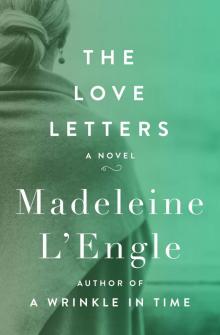 Love Letters
Love Letters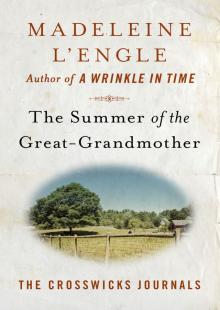 The Summer of the Great-Grandmother
The Summer of the Great-Grandmother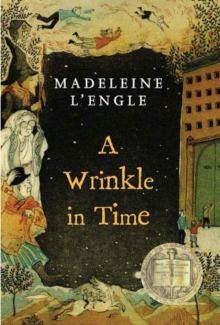 A Wrinkle in Time
A Wrinkle in Time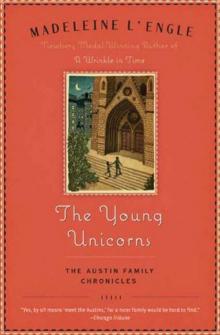 The Young Unicorns
The Young Unicorns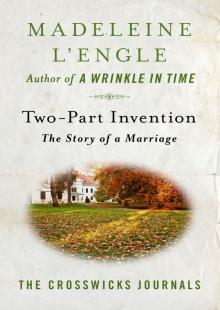 Two-Part Invention: The Story of a Marriage
Two-Part Invention: The Story of a Marriage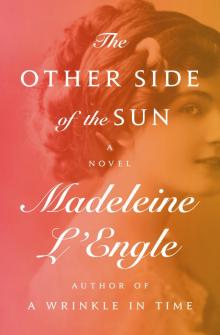 The Other Side of the Sun
The Other Side of the Sun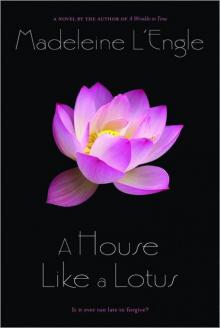 A House Like a Lotus
A House Like a Lotus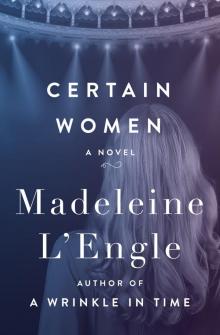 Certain Women
Certain Women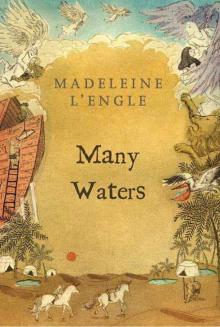 Many Waters
Many Waters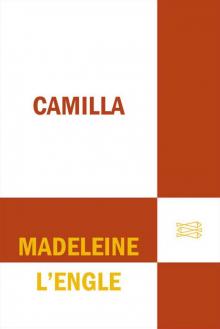 Camilla
Camilla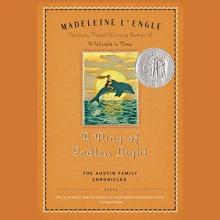 A Ring of Endless Light
A Ring of Endless Light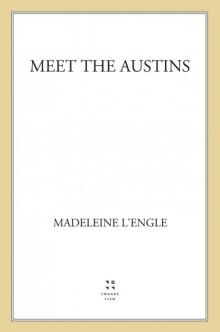 Meet the Austins
Meet the Austins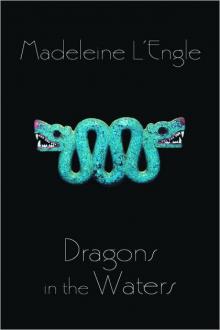 Dragons in the Waters
Dragons in the Waters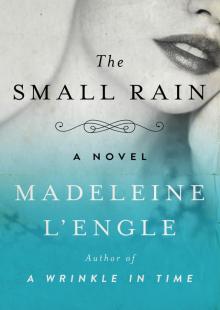 The Small Rain
The Small Rain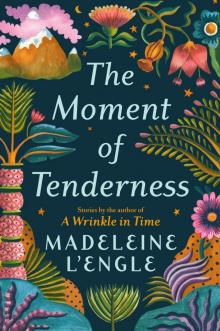 The Moment of Tenderness
The Moment of Tenderness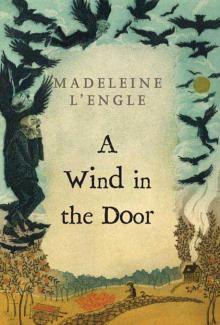 A Wind in the Door
A Wind in the Door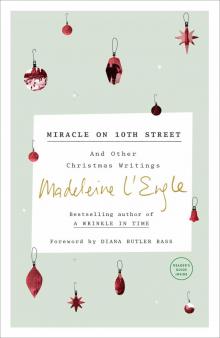 Miracle on 10th Street
Miracle on 10th Street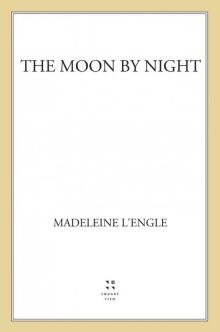 The Moon by Night
The Moon by Night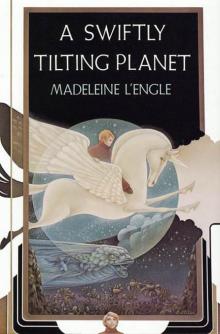 A Swiftly Tilting Planet
A Swiftly Tilting Planet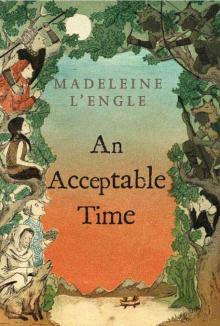 An Acceptable Time
An Acceptable Time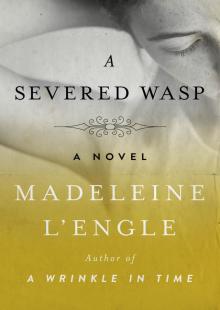 A Severed Wasp
A Severed Wasp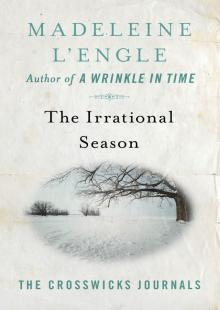 The Irrational Season
The Irrational Season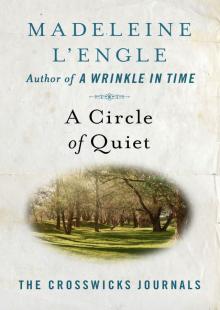 A Circle of Quiet
A Circle of Quiet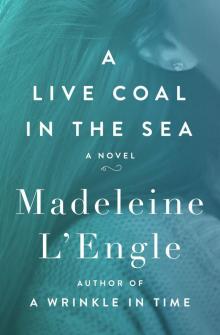 A Live Coal in the Sea
A Live Coal in the Sea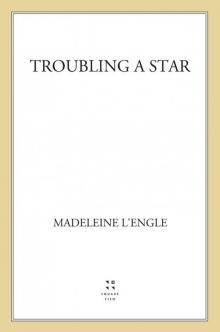 Troubling a Star
Troubling a Star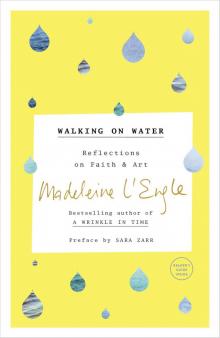 Walking on Water: Reflections on Faith and Art
Walking on Water: Reflections on Faith and Art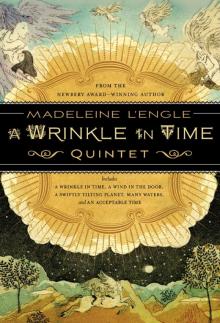 A Wrinkle in Time Quintet
A Wrinkle in Time Quintet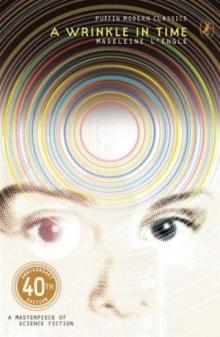 Wrinkle in Time
Wrinkle in Time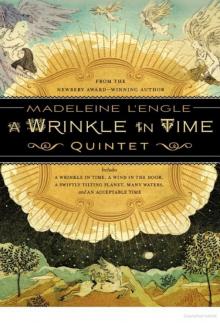 The Wrinkle in Time Quintet
The Wrinkle in Time Quintet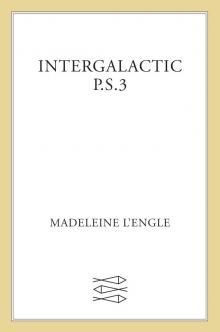 Intergalactic P.S. 3
Intergalactic P.S. 3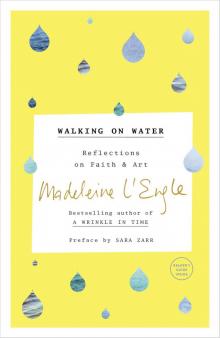 Walking on Water
Walking on Water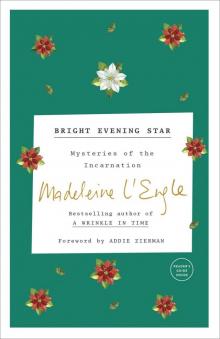 Bright Evening Star
Bright Evening Star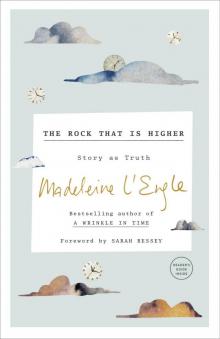 The Rock That Is Higher
The Rock That Is Higher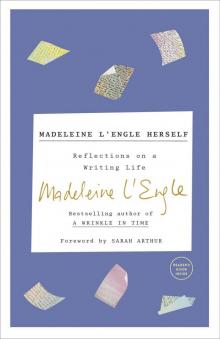 Madeleine L'Engle Herself
Madeleine L'Engle Herself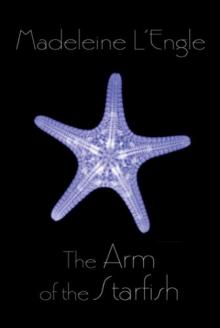 The Arm of the Starfish
The Arm of the Starfish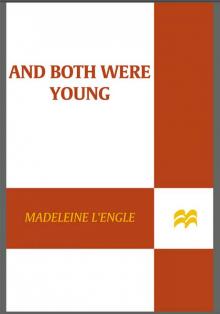 And Both Were Young
And Both Were Young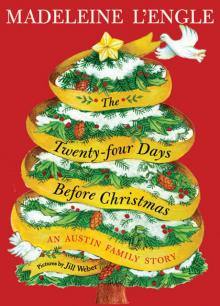 The Twenty-four Days Before Christmas
The Twenty-four Days Before Christmas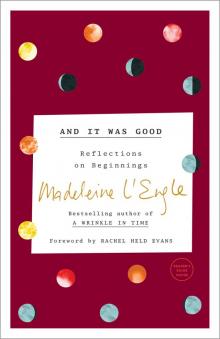 And It Was Good
And It Was Good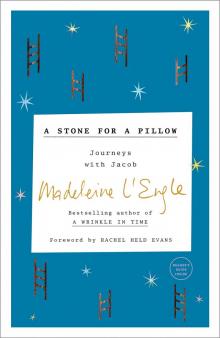 A Stone for a Pillow
A Stone for a Pillow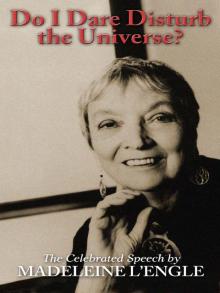 Do I Dare Disturb the Universe?
Do I Dare Disturb the Universe?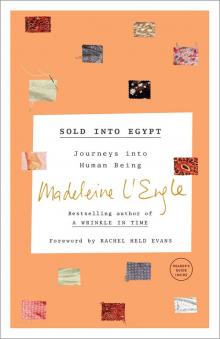 Sold into Egypt
Sold into Egypt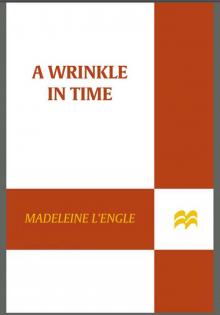 A Wrinkle in Time (Madeleine L'Engle's Time Quintet)
A Wrinkle in Time (Madeleine L'Engle's Time Quintet)